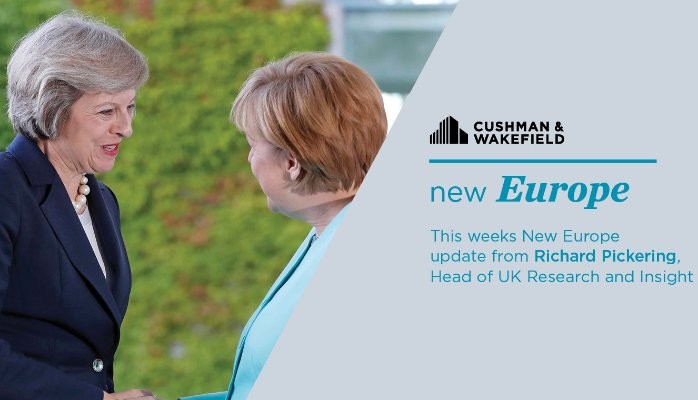
New Europe: Making friends and influencing people
This is an excerpt from my weekly email update on the key themes in post-referendum UK.
Vicars’ daughters. Theresa May began her tour of Europe this week, meeting with Angela Merkel and Francois Hollande. A divide in stance has emerged between the EU leaders. Hollande insists that the UK should invoke Article 50 as soon as possible, and reiterates the unity between single market access and free movement of people. In a seeming softening of position Merkel appears more equivocal, stating a preference for definition of the negotiation, rather than speed. For the time being, a common approach between two vicars’ daughters.
Markets and movement. The property market is impatient for certainty; but getting the right balance between single market access and control of borders is imperative for long term growth. The two are aligned, but which of the two is more important? Simplistically, if negotiations ended without an EU trade deal, we would pay an average 2.4% tariff on exports; but relinquish an equivalent 7% net contribution, which taken in isolation implies a financial benefit to being outside the single market. This is too simplistic. All the same, many still believe that restricting freedom of movement might create a bigger financial detriment to some UK businesses. Whether the electorate agrees is a different matter.
Stagecoach pulls into Central. In positive news for the City office market, Wells Fargo, the world’s biggest bank made a long term commitment to London, buying 227,000 sq ft from developer HB Reavis at 33 Central. Whilst the transaction goes down as a landmark post-referendum investment deal, it is the occupational story that is most reassuring. In the wake of conjecture from other banks about their future in the UK, Wells Fargo joins SocGen in delivering a firm commitment to maintaining jobs in London.
Investors push on. Our analysis shows that far from sitting on their hands, investors are continuing to execute investment transactions, with three quarters (by value) of all UK transactions being promoted pre-referendum continuing as planned. The analysis suggests that London is particularly robust, with the proportion of deals not proceeding or on hold being just 15% - which is within a typical range of tolerance for such transactions in any event.